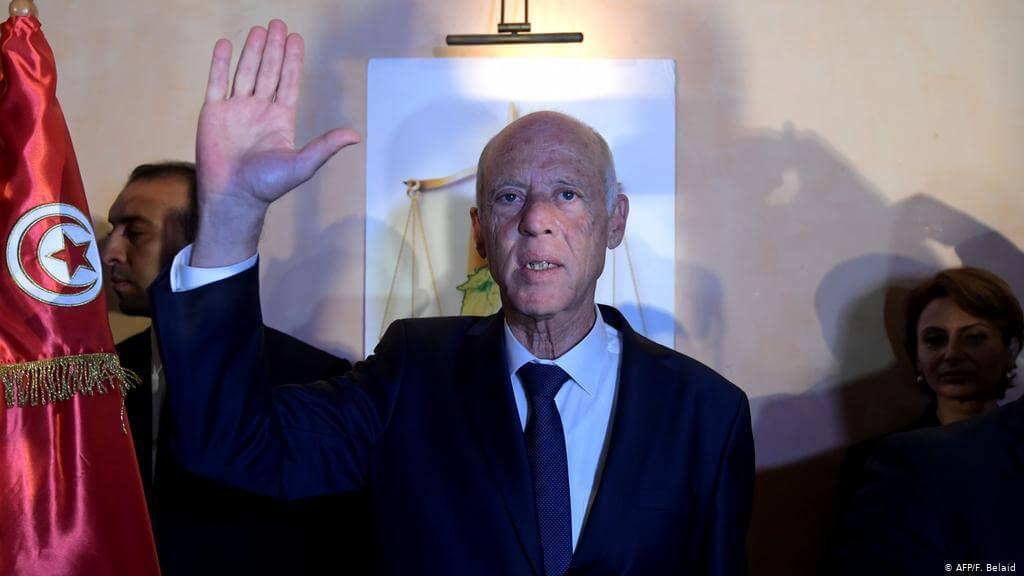On Sunday, Tunisian President Kais Saied dismissed Prime Minister (PM) Hichem Mechichi and froze the parliament for 30 days, escalating the country’s months-long political crisis. Opposition leaders in the North African country have called Saied’s move a “coup” and urged people to come out on the streets to protest.
News reports stated that Saied lifted the immunity of all parliament members and said that he and a newly appointed PM would assume executive authority. “We have taken these decisions [...] until social peace returns to Tunisia and until we save the state,” Saied said. Announcing his move in a televised statement, Saied warned against any violence, saying, “I warn any who think of resorting to weapons [...] and whoever shoots a bullet, the armed forces will respond with bullets.” He also mentioned that his actions abided by Article 80 of the Tunisian Constitution of 2014, which states that in the “event of imminent danger” to the Tunisian republic, the President “may take any measures necessitated by the exceptional circumstances.” It adds that the President should consult with the PM and Speaker of Parliament before taking any action, and that any such measures must ensure “a return to the normal functioning of state institutions and services.”
However, Rached Ghannouchi, the Speaker of the People’s Assembly and the president of the Ennahda party, claimed that the President did not consult him regarding the activation of Article 80. Ghannouchi called the President’s actions “unconstitutional, illegal, and invalid.” He also urged Tunisians to unite against this “return to dictatorship” and defend their freedoms. “I reassure the Tunisian people that their democracy and revolution will be protected and will never be sacrificed,” Ghannouchi said. Moreover, he told Reuters that Saied’s move was a “coup against the revolution and constitution.”
TUNISIA: Crowds take to streets in Tunis tonight to celebrate President decision of dismissing Gov. , firing PM & freezing parliament.
— Joyce Karam (@Joyce_Karam) July 25, 2021
Major political upheaval. Islamist Opposition calling it a “coup”, reports on airport & borders closures: pic.twitter.com/HSdsf1tKXU
Soon after Saied’s announcement, tens of thousands of people took to the streets to welcome his move and celebrate the government’s ouster, which had become unpopular due to its handling of the COVID-19 crisis. In addition, people protested against the Ennahda party, and some protesters stormed the party’s offices in Tunis and vandalised equipment. Videos circulating online showed smoke billowing from the Ennahda building. “The president was very brave [...] we know this is not a coup,” a protester told Reuters. Tunisians have blamed the Ennahda party for the country’s failure to achieve political and economic prosperity even after a decade has passed since the Arab Spring protests brought in political change.
Meanwhile, anti-government protesters clashed with security forces deployed in large numbers to block agitators from storming the parliamentary building. The Associated Press reported that police used tear gas to disperse protesters and made several arrests.
Sunday’s developments follow months of disagreement between Saied and Mechichi, appointed PM by Saied in 2019, to handle the economic and COVID-19 situations. Tunisia has been facing a recent surge in virus infections, adding to the economic and political woes of the country. Unhappy with the government’s response to the coronavirus crisis, President Saied sacked the health minister earlier this month and said that the army would be responsible for the pandemic response. However, critics have argued that the President had overstepped his powers, as he is directly responsible for only foreign affairs and the military.

